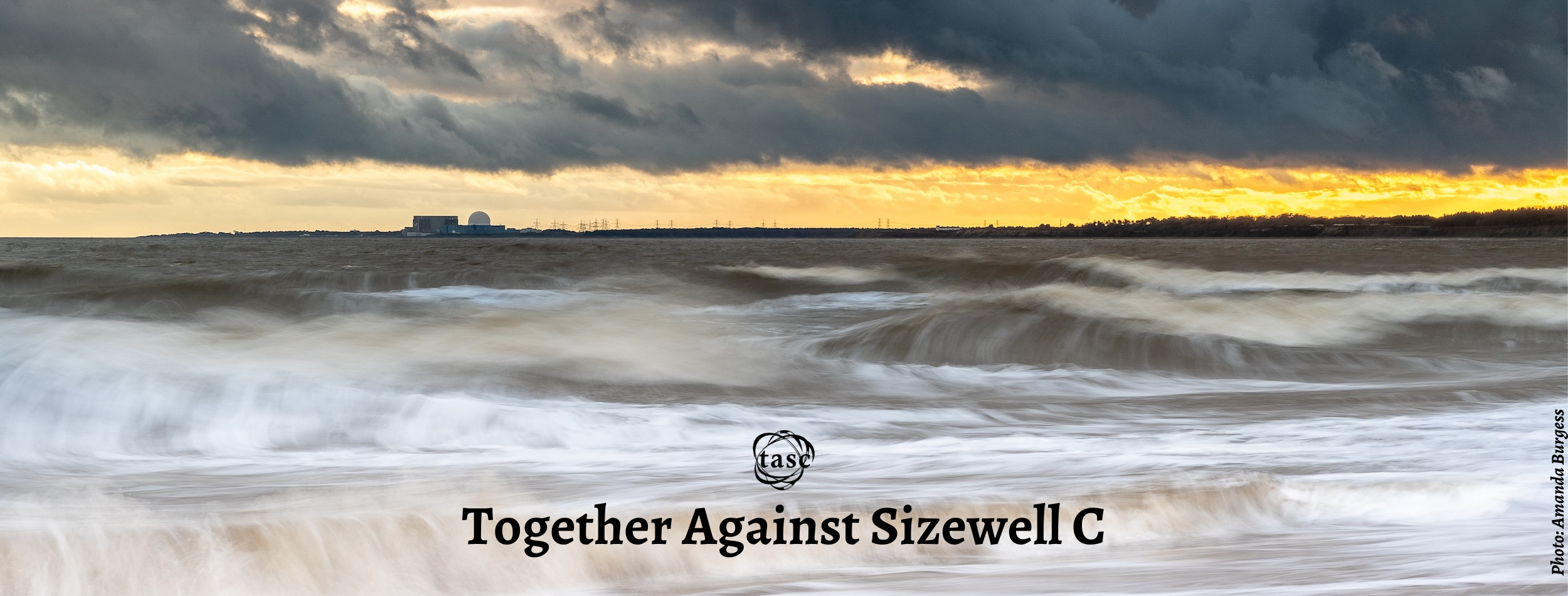
TASC condemns energy statement as evidence of Johnson’s final capitulation to fantasy politics.
The excuse handed to the government by the war in Ukraine to justify a headlong rush into a nuclear nightmare in this country has been grasped with both hands by Mr Johnson and his nuclear-phile MPs. He is supported by a compromised and myopic Labour Party, desperate not to risk trades union money to keep it financially afloat. The opportunity being eagerly exploited by Johnson as a means to remove ourselves from the reliance on Russian fossil fuels is simply an excuse to indulge the Tory policy of an economy fuelled by the atom when the costs of realising these fantasies are eye-watering, technologically uncertain, environmentally disastrous, climate change marginal and morally and ethically indefensible.
He conveniently ignores the fact that removing reliance on Russian gas and oil will be replaced by longer term reliance on the West importing increased amounts of uranium from Russia, Kazakhstan and Uzbekistan, so while trumpeting how the expansion of the domestic nuclear program will remove us from the fire of Putin’s oil and gas supplies, it forces us to jump into the frying pan of reliance on Russian controlled uranium fuel[1].
Mr Johnson should beware, that in France, the nuclear pin-up for nuclear aficionados, it was recently reported that only 50% of their nuclear generating capacity was available as over 40% of its 56 nuclear plants were out of action due to planned and unplanned outages, and extended repairs due to corrosion in their ageing plants. The result? Appeals to customers to reduce electricity use and rapidly rising prices, a precursor of things to come in the UK[2].
Sizewell B, the UK’s only Pressurised Water Reactor, generated its first electricity in 1995, eight years after its construction. In the intervening 27 years, no new nuclear plant has been constructed, demand for electricity has fallen by 16% and, confounding predictions of the lights going out in 2017, they have stayed on. There is no energy crisis in the UK, it’s a pricing crisis which will be exacerbated by the government’s financial support for new nuclear projects. Nuclear power remains an option for future supply, not an imperative. Hinkley Point C, the only new nuclear plant under construction, is already a decade late and is not expected to generate any electricity until at least 2026 (more likely to be 2030) at a cost of £23bn, although EDF are still coy about telling us the extent of the latest delay or the size of the most recent cost increase. In 2020, the UK’s electricity consumption fell to its lowest level this century at 287.4 terawatt hours, while supply reached 295.8 terawatt hours. The Covid epidemic clearly played a role in reducing demand in ‘the covid year’, but it has been falling steadily since 2005 when consumption was 357 terawatt hours.
A TASC spokesperson said today, ‘The plan for up to eight new nuclear reactors and the tragic circumstances which have created the opportunity have played into Johnson’s hands. Nuclear adherents have not been slow to beat their chests in support. However, not only will each of these reactors cost huge amounts of money for which the consumer will eventually pay, including the cost of over-runs and compensation payments for any accidents which may occur, but they also represent, as we have seen in the Ukraine war, targets for potential aggressors. Reactors are containers of huge amounts of lethal radioactivity and only human safeguarding can keep it inside the reactor vessel to prevent widespread contamination and the need for evacuation. In a situation of conflict where institutional control is lost, such contamination would be unavoidable from a crippled reactor. Johnson’s madcap nuclear plan holds to ransom future generations who will not have benefitted from the electricity generated but who will have a constant and potentially lethal reminder of our short-sightedness. It is intergenerational vandalism for this government’s political convenience at a time when we need a visionary national plan with jobs and training to promote a ‘use less not more’ philosophy.’
There is scant funding for or recognition of the over-riding importance of driving down demand for electricity consumption, no mention of mandatory photovoltaic roof panels on every suitable new building, decentralising electricity production, introducing smart grids and conservation measures. Demand reduction does not offer Mr Johnson the same photo opportunities as do shiny new nuclear plants sprawling over acres of valued countryside, of course, but if he is serious about zero carbon by 2050, he would do well to switch investment into electricity storage technology development, introduce targets for onshore wind, support energy efficiency and fund property insulation retrofitting policies – faster, cheaper, more reliable options which avoid the burden we pass to future generations in the shape of nuclear waste for which there is, despite what EDF would have us believe, no universally agreed and implementable solution.
7th April 2022
ENDS
More information on Europe’s involvement with Rosatom, the Russian state’s nuclear operator
[i] https://rosatom-europe.com/rosatom-in-country/history-of-cooperation/
[1] https://theconversation.com/russias-energy-clout-doesnt-just-come-from-oil-and-gas-its-also-a-key-nuclear-supplier-179444
[2] https://reneweconomy.com.au/france-pays-the-steep-cost-of-inflexible-and-ageing-nuclear-as-electricity-prices-soar/

